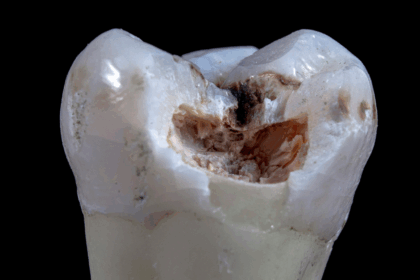Hi readers!
Sorry for being absent last week.
Are you familiar with above mentioned verse of the famous poet Hafeez Jalandhari who also wrote our National Anthem in 1952?
I cannot define “Indecisiveness” better than this verse which probably revealed or descend upon him after meeting some “indecisive” friend. I wish he could live today to see a huge crowd of such people mostly sitting at the helm of affairs, playing with fate of everyone.
Indecisiveness is a condition or quality of being unable to decide, conclude, or resolve something. It is a state of mind that doesn’t allow the sufferers to choose between options which can be a challenge in various aspects of life, from small daily choices to major decisions, and can lead to frustration, anxiety, and delays.
Individuals with obsessive-compulsive disorder (OCD) often exhibit indecisiveness, pathological doubt, and avoidance of uncertainty.
Pathological doubt is a significant symptom of OCD characterized by excessive, persistent, and intrusive doubts, often about actions, decisions, or thoughts. It manifests as an inability to have certainty or conviction in one’s actions, leading to repeated checking behaviors or mental acts to alleviate the doubt
OCD is a mental health condition characterized by unwanted, intrusive thoughts (obsessions) and repetitive behaviors or mental acts (compulsions) performed to manage the anxiety caused by those thoughts and pre-occupation with similar other thoughts.
The repercussions of OCD can be significant, impacting daily life, relationships, and overall well-being which can significantly impact work, school, social activities, and daily tasks due to time-consuming obsessions and compulsions. It can also strain relationships with family, friends, and romantic partners due to excessive anxiety, demands for reassurance, or difficulties in communication. It can also be one of the cause of other related mental health conditions like anxiety, depression, and substance abuse.
Substance abuse is consumption of alcohol, prescribed medicine, and other legal and illegal substances too much or in the wrong way.
Substance abuse differs from addiction. Many people with substance abuse problems are able to quit or can change their unhealthy behavior.
Physical health of the sufferers can also be affected. For example, he/she could face physical problems like skin irritation from excessive washing or poor sleep due to anxiety, suicidal thoughts/attempts can be increased particularly in individuals with co-occurring mental health conditions.
People with OCD can lead to financial strain due to missed work, increased healthcare costs, or excessive purchases related to compulsions which can also result into lower quality of life because OCD can significantly impair a person’s ability to enjoy life and engage in activities.
The causes of OCD are not known exactly but it can be a Genetic factors which someone can inherit from parents? It can be a chemical imbalance of serotonin in the brain?
Serotonin is a chemical that carries messages between nerve cells in the brain and throughout the body and plays a key role in such body functions as mood, sleep, digestion, nausea, wound healing, bone health, blood clotting and sexual desire.
It can also be due to some life changes such as a new job or the birth of a child which extends more responsibility on a person that can trigger OCD.
Behavioral factors can also trigger OCD. For example, some people are extremely organized, neat, meticulous and those who like to be in charge from a young age (I am born with these qualities or difficulties) sometimes run the risk of developing OCD but thanks God-almighty, I have not developed even a slightest symptom of OCD except sleep deprivation which I am trying to control and are enormously successful.
Personal experience/behavior can also cause OCD especially a person who has experienced severe trauma (for example repeated betrayal of a trusted friend like betrayal of trust, finances, professional (fallacies/rivalries) etc.
Treatment for OCD can be very effective as it let people recover completely and ranges from a variety of medications to therapies. In mild cases, therapies, such as cognitive behavioral therapy (CBT) alone is sufficient as it helps individuals to identify and manage their obsessions and compulsions which can help the sufferers. In more severe cases, medication is prescribed; antidepressants are commonly prescribed to help with relieving anxiety.
Though, it can be frustrating to get along with OCD sufferers but caring for that person is very important considering that person with OCD is not a burden but is trying to cope with the anxiety as best as possible. It is necessary to talk to them about getting help, which can be challenging and will require patience because most of the sufferers do not believe they need help, and in some cases, they feel a sense of shame regarding their obsessions. Talking to them can help them face their fears from time to time.
Talking of a trusted friend or life partner to the sufferers of OCD is helpful in coping with it as it can help reduce the fear associated with the obsessions considerably. Physical activity like playing a sport can boost mental wellbeing and helps avoid intrusive thoughts.
Intrusive thoughts are unwanted, distressing thoughts or images that pop into mind unexpectedly, often causing anxiety. They can be about anything, including violent sexual scenarios, fears of doing something inappropriate, or random, illogical thoughts.
Dear readers! look around and watch how many OCD sufferers are roamin around you? May be none or may be all with severe to mild symptoms.
Try helping them if you can.
See you next week, Take care, Bye





